Bangladesh, a nation long recognized for its thriving textile sector and customary workmanship, has seen a significant shift in the women’s clothing business. This transformation takes many forms, from the advent of ready-to-wear and haute couture to the increasing appeal of vintage and secondhand apparel and the introduction of sharing economy platforms such as “Rent the Dress.” In this blog, we will look at how these dynamic changes influence Bangladesh’s fashion sector.
Haute Couture: The Next Phase
In recent years, Bangladesh’s haute couture business has proliferated, becoming a dynamic and inventive element of the world of fashion. Bangladeshi haute couture is distinguished by the combination of current design sensibility and traditional workmanship. Many haute couture pieces are inspired by the nation’s rich textile legacy, which includes fine materials like silk, muslin, and jamdani.
Bangladesh Fashion week 2021, Honoring the silks and artisans
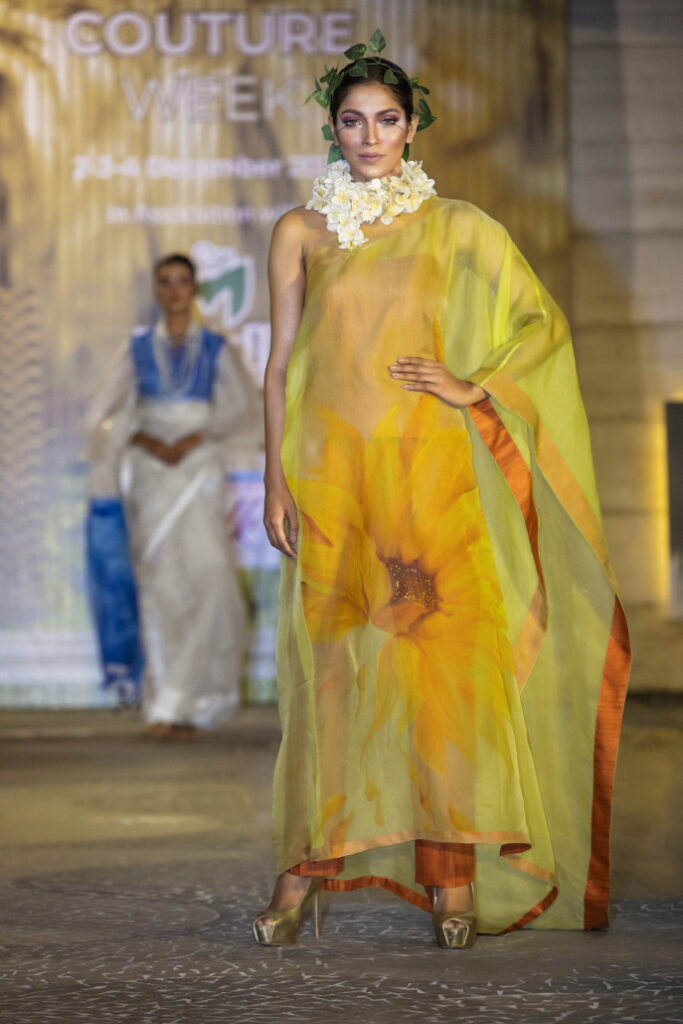
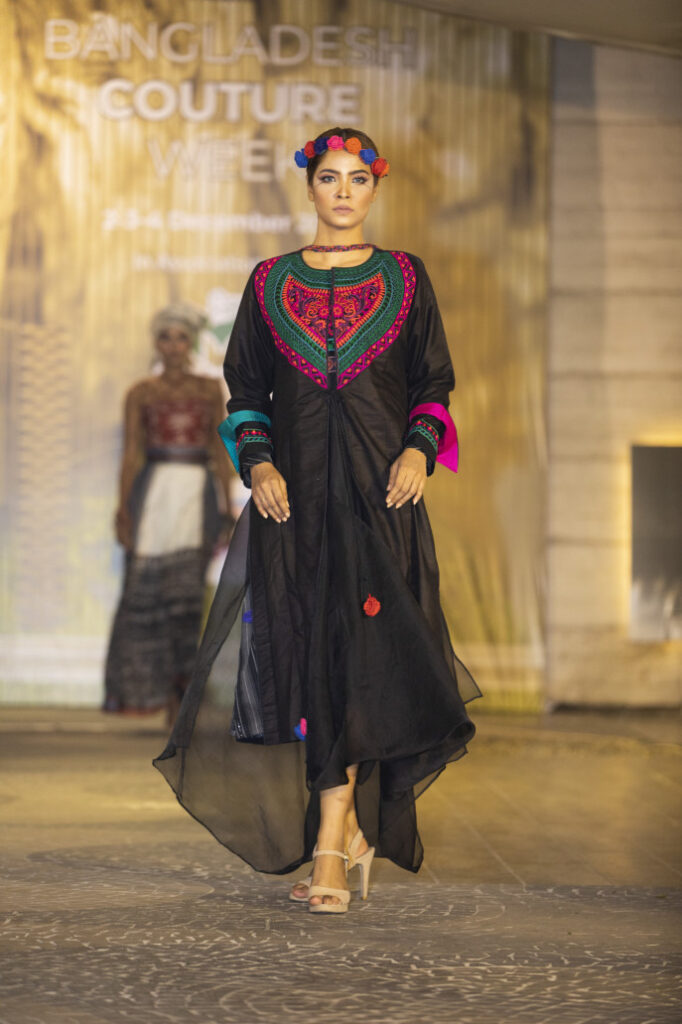

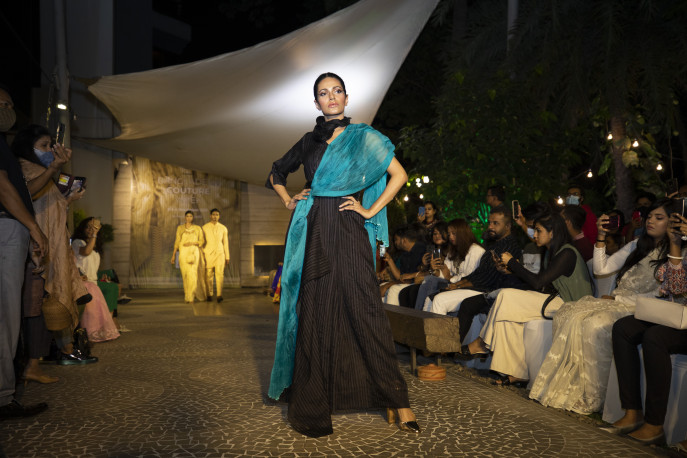
Prominent designers such as Maheen Khan, Asma Sultana, Ezmat Naz Rima, and Bibi Russell have been crucial in elevating Bangladeshi haute couture to a national and international level. They have created distinctive, sophisticated, and culturally relevant fashion statements by skillfully fusing traditional themes and methods with modern designs.
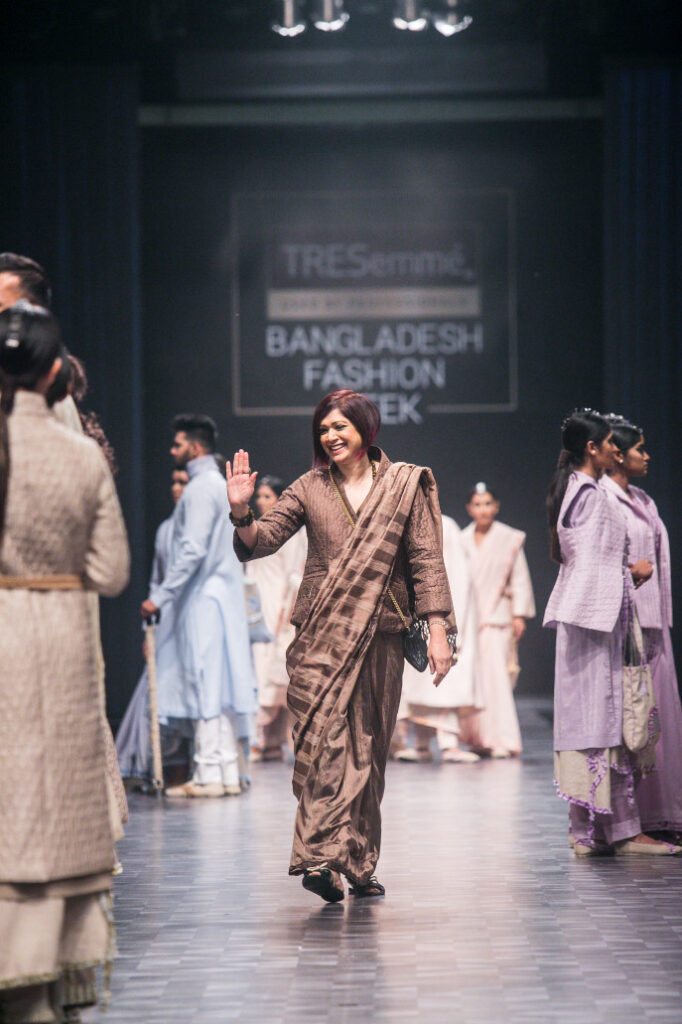
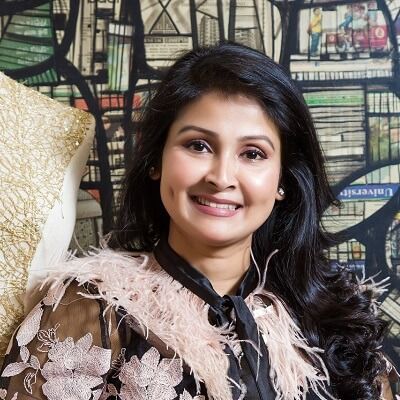

Additionally, Bangladesh’s dedication to ethical and sustainable fashion methods has drawn attention from throughout the world. Setting an example for the fashion industry, several designers prioritize ethical labor methods and environmentally friendly materials. Bangladesh’s haute couture sector is becoming more and more well-known, demonstrating that sustainability and elegance can coexist peacefully with an increasing audience.
Ready-to-wear: Filling in the Blanks
While ready-to-wear fashion has swept the fashion world, haute couture still embodies exclusivity and luxury. Ready-to-wear collections in Bangladesh provide the ideal harmony of style and economy. Fashion is becoming more inclusive and approachable as designers and manufacturers create stylish, widely available apparel lines that appeal to a broader market.
Sabah Khan’s “off the rack” or ready-to-wear collection
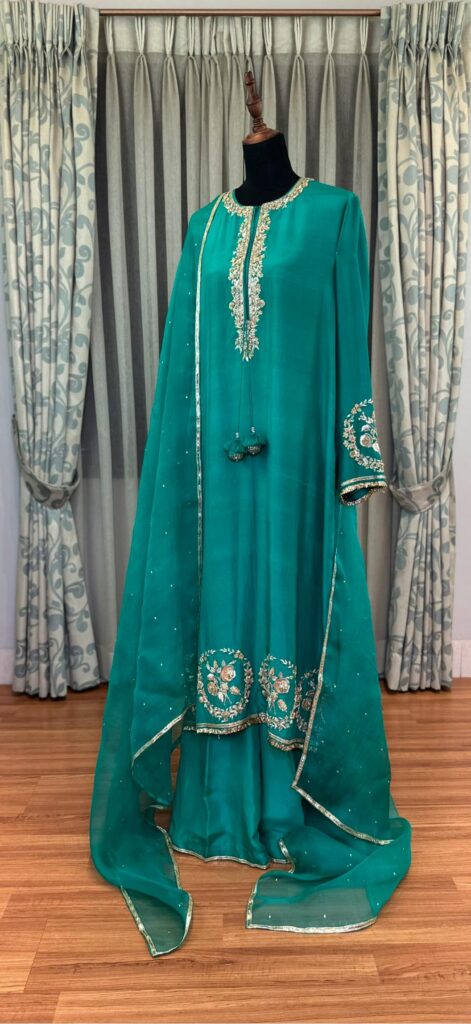
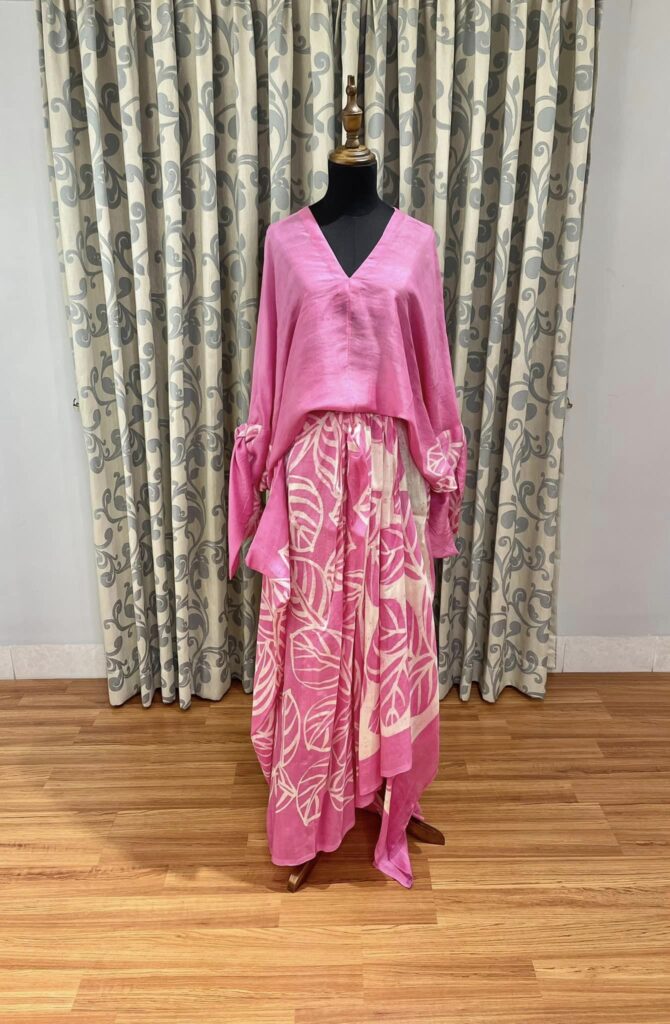
Bangladesh’s ready-to-wear industry also benefits from serving a wide range of consumers, including students, homemakers, and young professionals. In addition to giving women more freedom to express themselves via clothing, this move toward accessibility has dramatically boosted the development of the nation’s fashion sector.
Vintage and Second-Hand Clothing: Style and Sustainability
The rise of vintage and second-hand clothing has paralleled the expansion of ready-to-wear and haute couture in Bangladesh’s fashion industry. Sustainable fashion is gaining traction as buyers who care about the environment choose to buy used clothing to lessen their environmental impact. There are a plethora of thrift stores and internet markets that sell a variety of used apparel, including antique items.

People who wish to be fashionable and make eco-friendly decisions will find this trend appealing. Customers looking for unusual, one-of-a-kind pieces are drawn to vintage apparel, which is frequently treasured for its timeless appeal and unique styles. The goal to lessen waste and encourage ethical purchasing is also reflected in the popularity of these products.
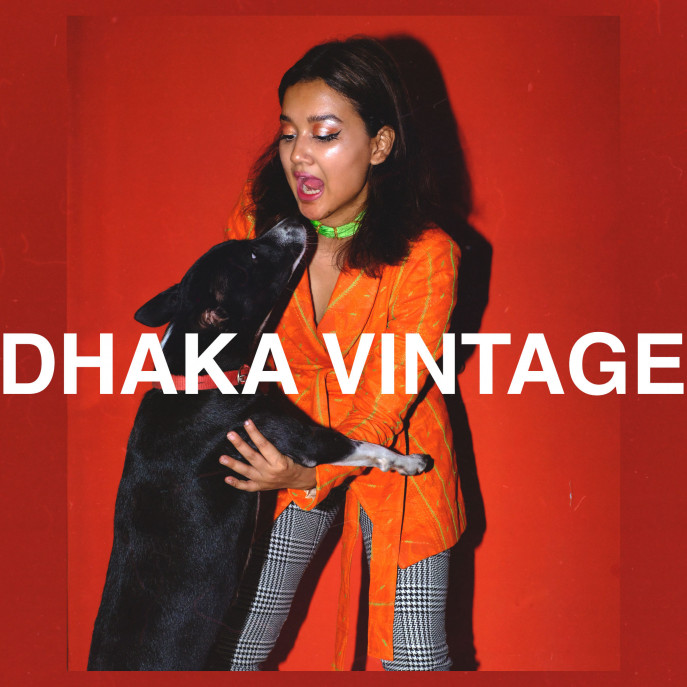
Share Economy: “Lease the Clothes”
Fashion is just one of the many sectors that the sharing economy has upended. “Rent the Dress” or “leasing” services, which let customers rent elegant dresses instead of buying them for special occasions, are becoming more and more popular in Bangladesh. Women who wish to wear an exquisite ensemble without having to commit to purchasing it will find this notion particularly appealing.
Weddings are extravagant, and the need for opulent and fashionable clothing for occasions like parties and galas is met by Rent the Dress services, which relieves the ownership burden. Preloved Dresses is a high-end rental marketplace for clothing that offers pre-owned, extravagant outfits for sale throughout Bangladesh, including exquisite gowns for brides and grooms, bridesmaids, and other formal events. In addition to embracing Bengali culture, Fathia Tamanna founded Dhaka Vintage, a second-hand clothes brand that addresses the infamous waste problem in the fashion industry.
This offers a lot of people an enticing substitute for shelling out big bucks on clothes they could wear once or twice. Not only does it lessen the environmental effect of making new clothing, but it also fits with the current trend of valuing experiences above stuff. Furthermore, these sharing economy platforms are helping women feel more connected to one another. They allow fashion enthusiasts to share their clothes and accessories with others, making money while giving others access to fashionable clothes at a significant discount from retail prices.
Bangladesh’s fashion scene is a vibrant fusion of innovation and heritage, with ready-to-wear and haute couture styles embodying accessibility and originality. Concurrently, the expansion of vintage and second-hand apparel businesses and the advent of sharing economy websites such as “Rent the Dress” represent a shift in favor of affordability, sustainability, and consumer empowerment. These modifications are reshaping fashion in Bangladesh, where women are actively involved in determining the direction of the business rather than merely being customers. Bangladeshi women now have more alternatives than ever for expressing themselves via their wardrobe, whether it’s through couture for statement-making, ready-to-wear for remaining current, or second-hand and rental options that embrace style and sustainability.
Resources:
August 17, 2022, Anjori Grover Vasesi, Apparel Resources, Dhaka Vintage giving fashion a new lease of life by upcycling and recycling vintage pieces, retrieved on October 25, 2023 https://apparelresources.com/fashion-news/features/dhaka-vintage-giving-fashion-new-lease-life-upcycling-recycling-vintage-pieces/
February 2, 2020, Promila Kanya, The Business Standard, Haute Couture by Ezmat Naz Rima, retrieved on October 25, 2023 https://www.tbsnews.net/feature/lifestyle/haute-couture-ezmat-naz-rima-41291
December 18, 2022, Nusrat Jahan Labonnayo, The Business Standard, Why not rent your wedding attire?, retrieved on October 25, 2023 https://www.tbsnews.net/features/mode/why-not-rent-your-wedding-attire-553582
